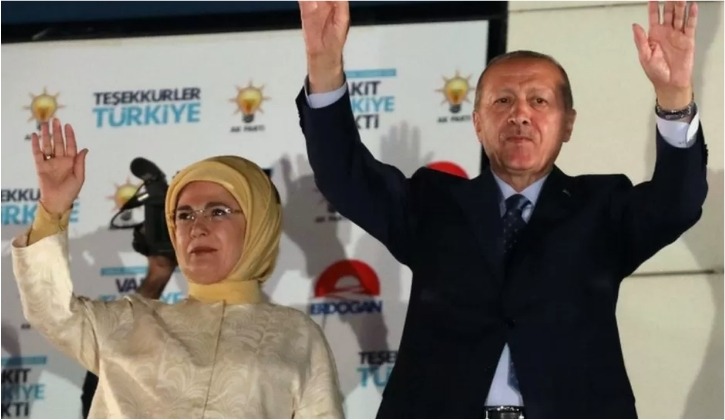
Turks living abroad in Austria showed a record participation rate of 56.17% in the recent presidential election, an increase of seven percent from five years ago. According to Ambassador Ozan Ceyhun, 62,349 out of 111,000 foreign voters in Austria cast their votes, demonstrating their ability to make a difference. The ambassador had expected a higher turnout and stated that many people were interested in the future of their country.
The presidential election is reportedly a close race, with both incumbent Recep Tayyip Erdogan and his challenger Kemal Kilicdaroglu having the possibility of achieving an absolute majority in the first ballot. As the final sprint approaches, the trend is moving towards larger parties. In the event of a run-off election, the voter turnout among Turks living abroad could be even higher due to the significance of the outcome.
In contrast to previous elections, the voting took place not only in the general consulates of Vienna, Salzburg, and Bregenz but also in Linz, Graz, and Innsbruck. The polling stations were open from April 29th to May 1st, and the votes are still being counted. Foreign voters registered in Austria had the option to cast their votes at airports or in Turkey on election day.
Traditionally, Turks living abroad have been seen as strong supporters of President Erdogan and his conservative Islamic AK party. In the 2018 presidential election, Erdogan received 72.3% of the votes cast in Austria, ultimately winning with 52.6%. However, polls suggest that Erdogan is currently behind his social democratic challenger Kilicdaroglu, who leads a six-party opposition alliance.
Ambassador Ceyhun explained that the participation of foreign Turks living in Austria is due to their exclusion from political participation in the country. He emphasized that the Turkish elections are their only chance to have their concerns heard.
Ceyhun refrained from commenting on the proposal by the FPÖ party for identity checks in front of Turkish polling stations to expose illegal Turkish-Austrian dual citizens, stating that diplomats are not allowed to comment on domestic policy issues. He also expressed skepticism about the success of such an action, noting that if dual citizens exist, they are unlikely to vote out of fear.
The ambassador’s comments also shed light on the ongoing political dynamics in Turkey. While President Erdogan has enjoyed strong support from Turks living abroad in the past, recent polls indicate a shift in public sentiment. His social democratic challenger, Kemal Kilicdaroglu, is currently leading a six-party opposition alliance and poses a formidable challenge to Erdogan’s rule.
As the votes from abroad are still being counted, the final outcome of the election remains uncertain. However, the increased participation rate among Turks living in Austria signifies a growing engagement and political awareness within this community. They recognize the potential impact of their votes and are determined to make a difference in shaping the future of their country.
In the face of these developments, the proposal by the FPÖ party to conduct identity checks at Turkish polling stations has sparked controversy. The intention behind this proposal is to expose any illegal Turkish-Austrian dual citizens who may attempt to vote unlawfully. Ambassador Ceyhun refrained from commenting on the issue, citing diplomatic restrictions on engaging in domestic policy matters. However, he expressed skepticism regarding the effectiveness of such measures, suggesting that dual citizens, if they exist, are unlikely to vote out of fear.
The Turkish election process serves as a platform for the global Turkish community to express their political preferences and have their voices heard. It represents a unique opportunity for foreign Turks living in Austria to exercise their democratic rights and contribute to the decision-making process of their home country.
As the votes are being tallied, the outcome of the election will have far-reaching implications for Turkey and its relationship with its diaspora. The engagement of Turks living abroad in the political process reflects their deep connection to their homeland and their desire to shape its future trajectory.
In the coming days, the final results of the Turkish elections will be announced, unveiling the choice made by Turks both within the country and abroad. The impact of their decisions will reverberate across borders, shaping the political landscape and determining the direction of Turkey’s future.
